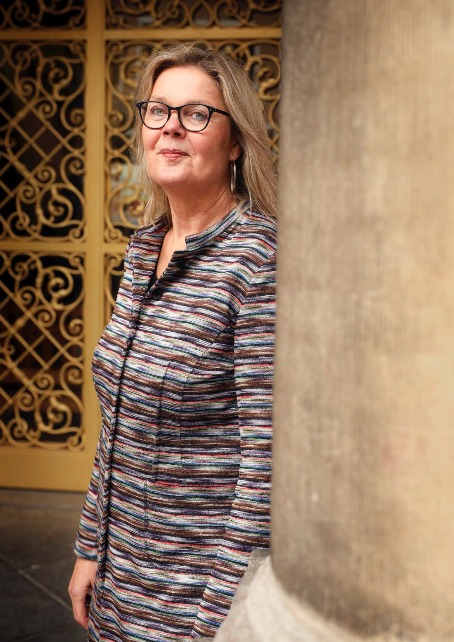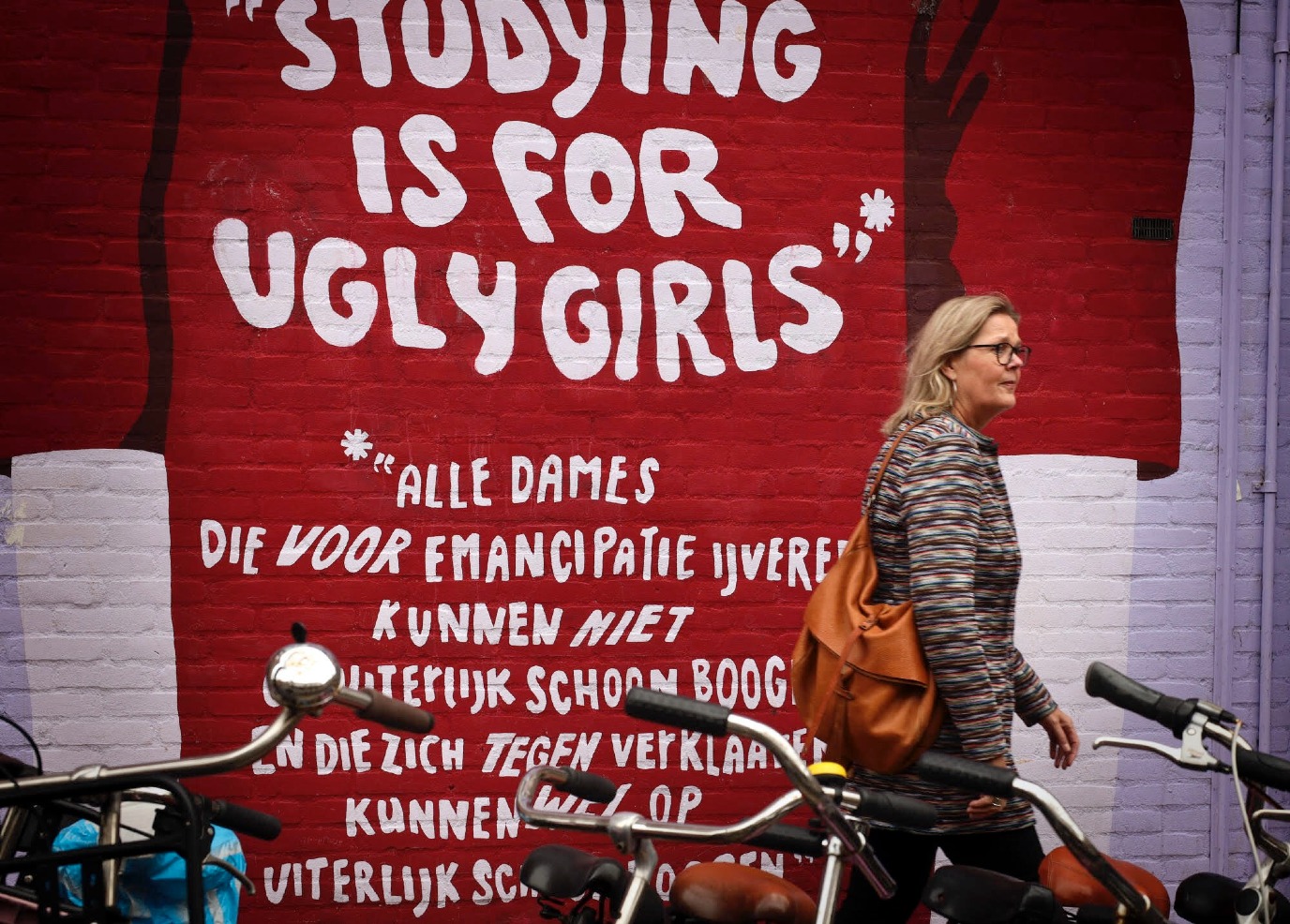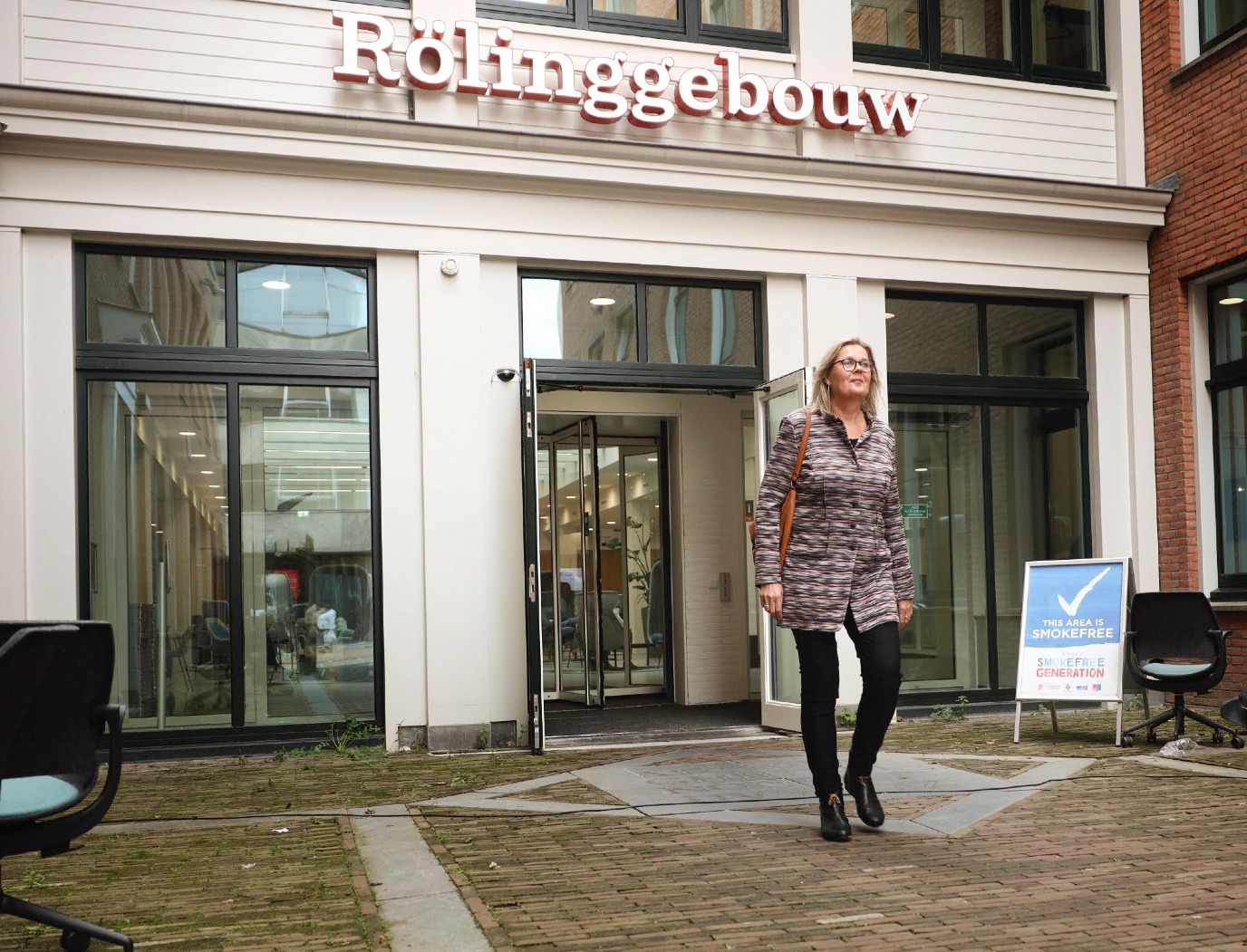Bigger than femicide alone – the role of gender in violence

In the media and politics, there is rising attention to femicide — the murder of women, often by a partner or a former partner. For example, there is a bill to criminalize psychological violence, which often precedes femicide. In June, the cabinet also presented the ‘Stop Femicide!’ programme and, since this month, Groningen has set up the Support Centre Filomena, where women who are victims of violence or coercion can find support. Martina Althoff, associate professor of Criminology, welcomes this but is critical at the same time: ‘It is important to realize the role of gender in violence.’ That is because femicide is an extreme form of violence that is based on persistent ideas about gender.
Text: Marrit Wouda, Corporate Communicatie UG / Photo’s: Henk Veenstra
Everything is gender
Althoff specializes in gender-related violence and public opinion about crime and punishment. According to her, gender plays a role in everything we do, including in violent crimes. ‘We see, for example, that experiences of violence are asymmetrical: men are more often perpetrators, and women, as well as people from the LGBTQI+ community, are more often victims. From that, we can conclude that gender actually always plays a role in violence.’ For those unfamiliar with the term: gender is the set of social, societal, and psychological characteristics we associate with masculinity and femininity. Gender norms tell us how men and women are ‘supposed’ to behave and present themselves. Althoff: ‘Gender is an important part of our identity. It is a way to organize our world. We can say that everything is gendered, or saturated with gender. The simplest example is the first question when you have a child: is it a boy or a girl? You might ask yourself why this is so important, but it is a fact that it gives us something to hold on to.
Gendered violence
‘Gender is broader than just being male or female, but gender dualism is very prevalent,’ Althoff says. The more someone clings to tightly defined, binary mindsets, the more they feel confronted when people deviate from that expectation. And that, in turn, can lead to violence,’ she continues. For example, it may occur in the case of an LGBTQI+ person who deviates from prevailing gender norms in behaviour and appearance, or someone whose gender identity is not immediately recognizable, or a female partner who resists an unequal distribution of power in a relationship. Gendered violence — or, violence where gender plays a specific role — is therefore broader than femicide. Femicide is at the top of the pyramid, but it starts much smaller. Consider discrimination, misogyny, manipulation, assault, coercion, and verbal assault. ‘There are all kinds of facets, from all kinds of milder forms to very serious ones. It starts with discrimination and sexism, which reinforce gender norms and the inequality between men, women, and queer people,’ she says. In the case of femicide, it is often about inequality, control, and power. ‘In a patriarchal relationship, with strong ideas about how power should be distributed, the idea prevails that you, as the male partner, get to control the woman.’

Criminal law is not a lifesaver
When a woman is murdered by her partner or former partner, it is more often explicitly referred to as femicide in the media. On the one hand, it is good that the phenomenon is being named, Althoff believes, but the media coverage also dramatizes it. And when we are confronted with a societal problem, Althoff says, we turn to criminal law too quickly. ‘As a criminologist, I often see that we think: there, it is covered by criminal law, there’s a law against it, problem solved.’ But that is a pseudo-solution. Althoff continues: ‘Of course, criminal law is moral, it reflects what we do or do not tolerate, but it does not lead to behaviour change either.’ Althoff also sees a big role for the media in how they write about femicide. When the media primarily shares the most violent, intense stories, the core— gendered violence and how common it actually is— remains invisible.’
Awareness
Althoff would therefore like us to broaden our view and focus more on the forms of gendered violence that precede femicide. ‘We know that there is always an extended period of control, humiliation, and manipulation first. That has to be recognized in time.’ Then something has to be done about it, but emergency workers and the police are still too unprepared to really do something about it, according to Althoff. The Stop Femicide! programme is a step in the right direction, Althoff says. This programme focuses on prevention, awareness, and early recognition of violence. ‘That way, we gain much more insight into the lead-up and we can focus more on prevention.’
From bad to worse
But, Althoff warns, addressing femicide hinges on raising awareness of the phenomenon of gendered violence — especially the milder forms. She refers to the #MeToo movement, where women shared their experiences with sexual violence. ‘It was not always about rape, and it showed us how even the smaller things added to the normalization of sexual violence.’ Even now, we must realize that sexist jokes reinforce gender norms and thus also encourage milder forms of gendered violence. ‘We need to discuss it, in the broadest sense.’

Are we already doing this?
According to Althoff, awareness must be permanent, in all actions and all plans, and if there is no increase in awareness, nothing is going to change. ‘I studied in the 1980s, and that really was the time of the women’s movement, marked by criticizing male-dominated academia, focus on gender inequality, and the emergence of women’s studies and later gender studies. And sometimes I do think: ‘Gee, are we still doing this?’ This, she says, shows us how powerful gender is as a system, and how patriarchal and unequal our society still is. ‘Of course, we have made progress, but it shows that we need to keep raising awareness and that a campaign like Orange the World is still really needed.’
Orange The World
On 25 November, the International Day for the Elimination of Violence Against Women, the Academy Building will be lit up orange. This is part of the international campaign Orange the World, the United Nations’ campaign to combat violence against women and girls.
Are you personally in a dangerous situation or worried about someone else? If so, you can contact Safe Home Groningen, Sexual Violence Centre
Groningen-Drenthe or
Filomena Groningen
. There are also various places within the UG where you can get support.
More information
More news
-
08 December 2025
Colourful Characters: Bert Röling
